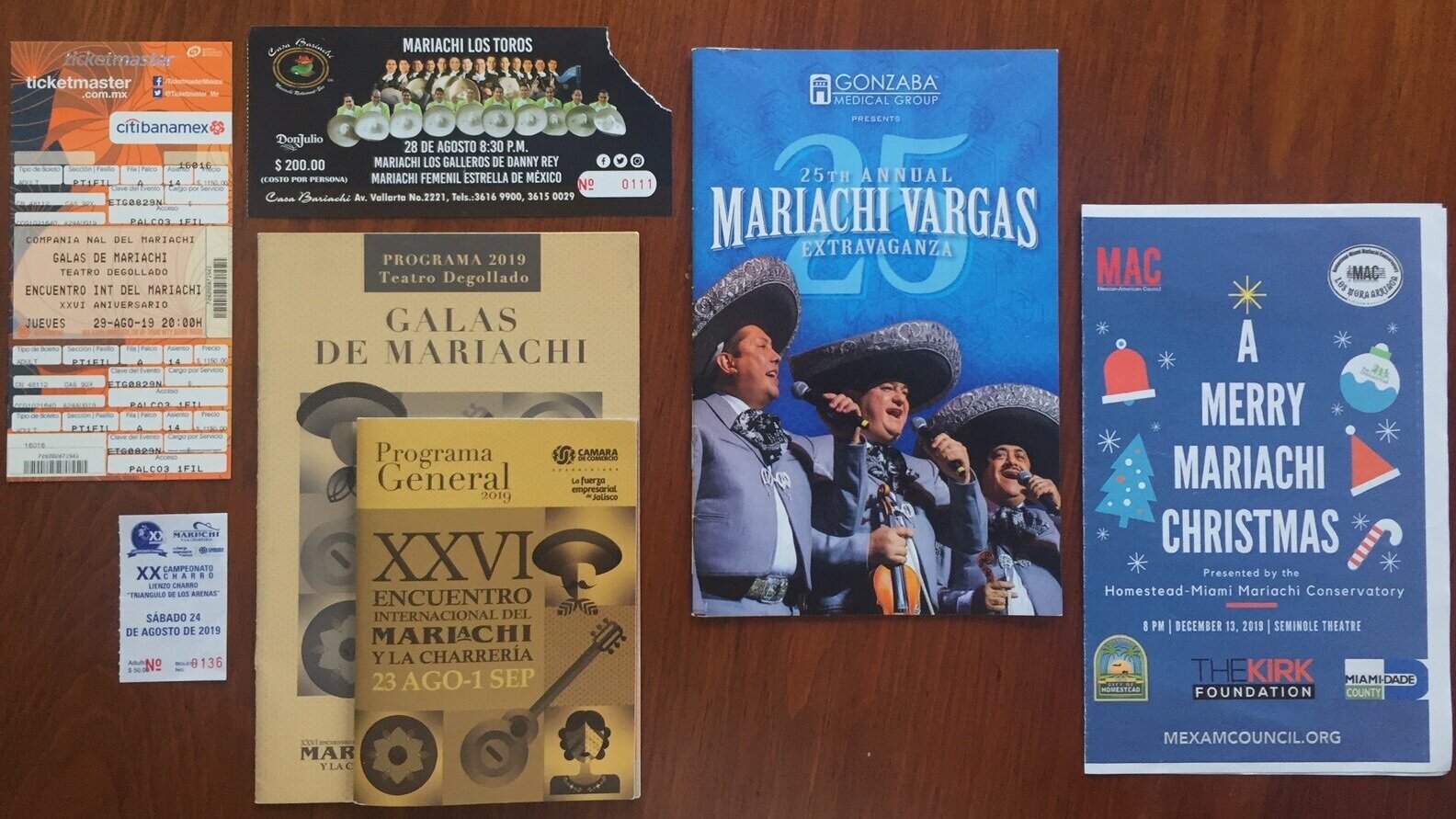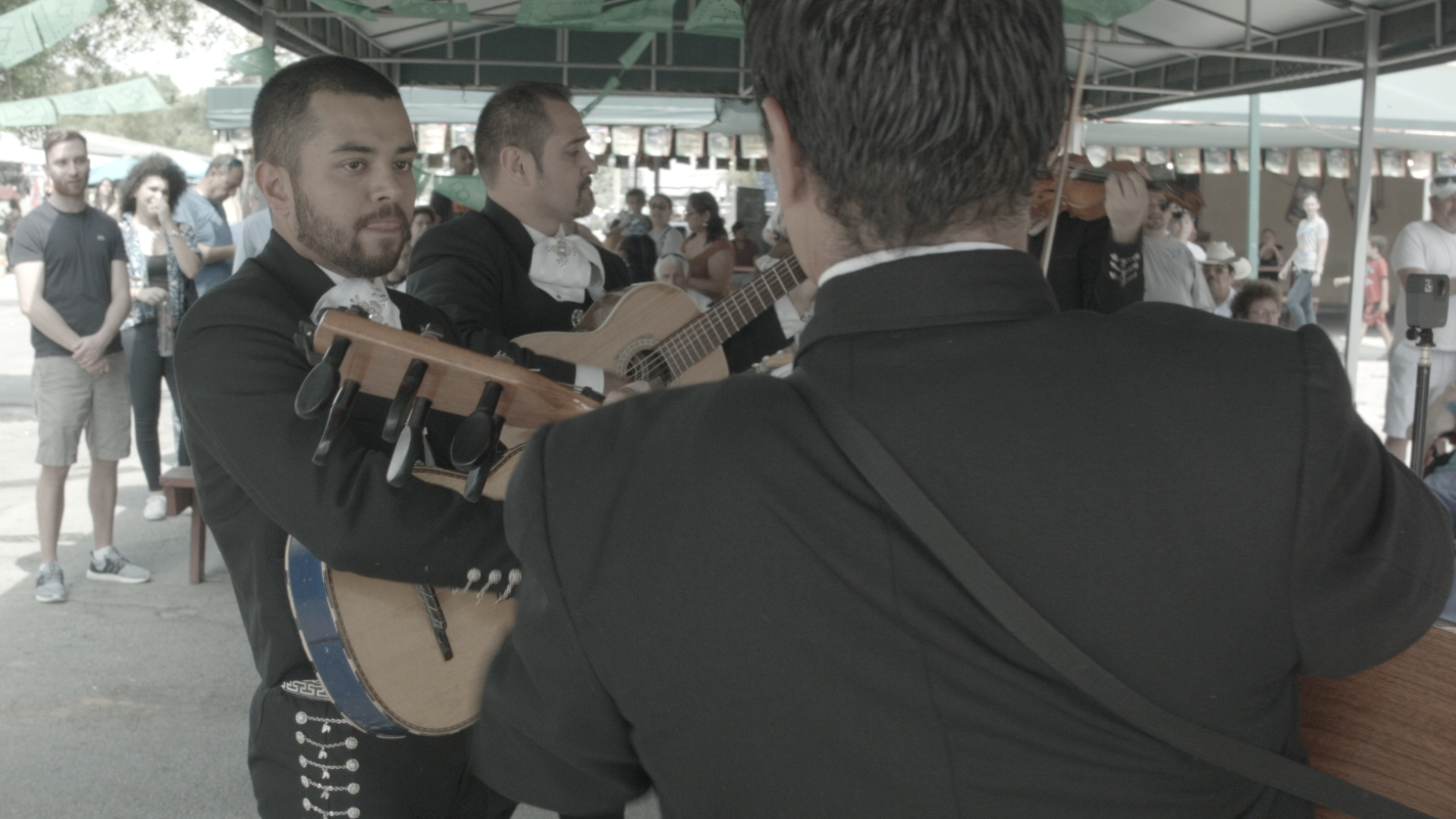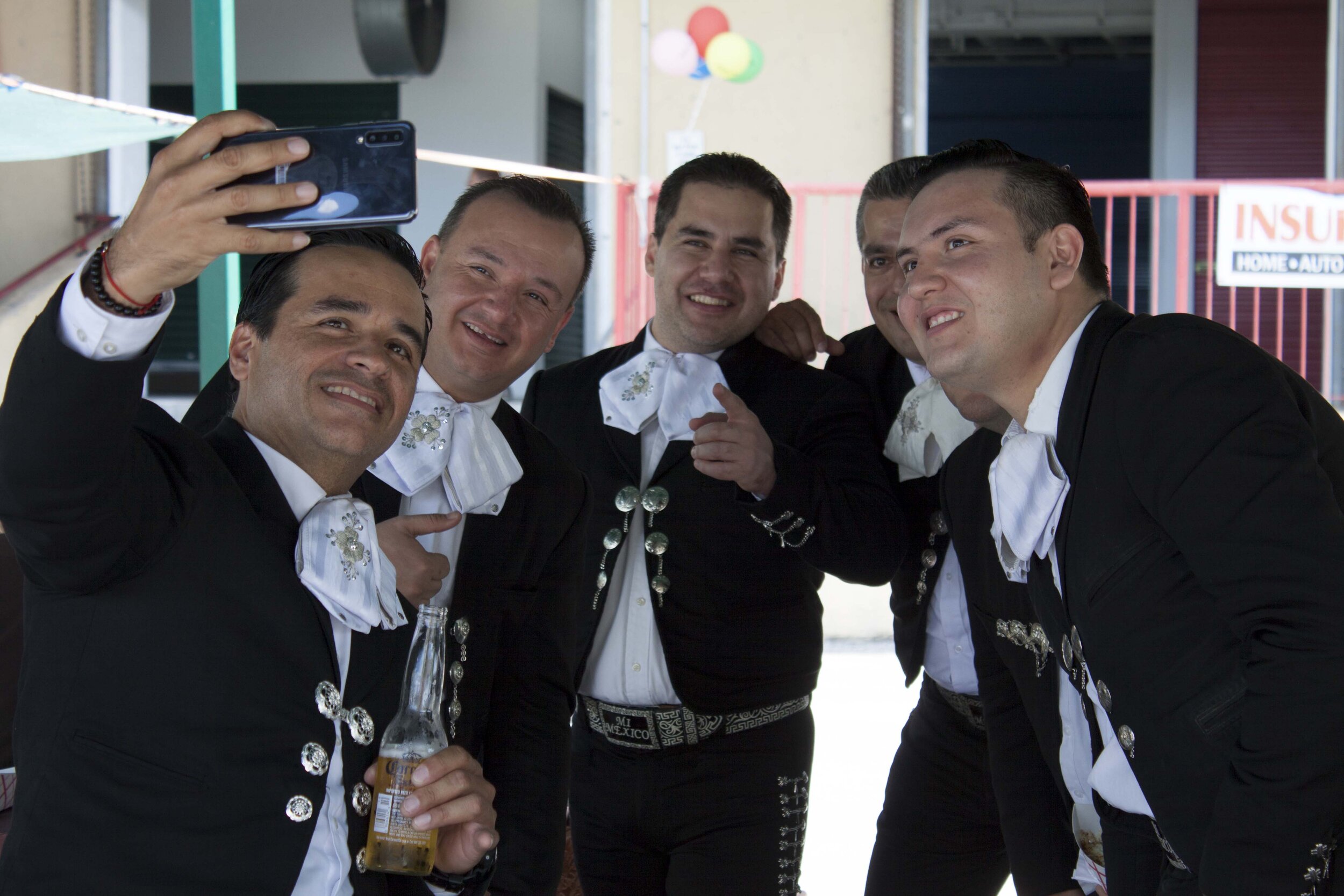WaveMaker Grantee: Oscar Rieveling
Written by Oscar Rieveling and Locust Projects
Interview with the Artist
Tell us about your WaveMaker project:
Auto-mariachi is an investigation of the legacy of mariachi music and performance, with a special focus on the musicians than animate this folkloric tradition. Who serenades the serenaders? This was the question I've sought to explore seeing how they are always at the service of the public, relaying a special affect that is never quite directed back towards them. Auto-mariachi will convene multiple mariachi groups to serenade one another in the context of the Redland Market Village. Accompanying programming will include a lecture on mariachi history and activities with the Homestead-Miami Mariachi Conservatory.
I'm interested in situating the performance at a site whose audience hails from countries where mariachi music maintains a presence in all aspects of social life, literally demarcating birth (baptisms) through death (funerals). Pausing on this sense of ubiquity seems especially important. Some might say this is redundant as the mariachi is like the tortilla, an ingredient that doesn't even need to be mentioned, you can simply count on it being present. However, the simple gesture of having the musicians face each other creates conditions that allows for both the performers and audience to see things anew.
The musical tradition mirrors the history of Mexico itself (colonial legacy, mestizaje, population shift from rural to urban areas, etc.) and seeing how it serves as an important nexus for those with Mexican ties, I've also looked to consider perspectives from both sides of the border. WaveMaker’s support went towards attending the two leading mariachi events in Mexico and the United States, the Encuentro Internacional del Mariachi y la Charrería in Guadalajara, Jalisco and the Mariachi Vargas Extravaganza in San Antonio, Texas respectively. These moments have facilitated a better understanding for the contexts through which mariachi traditions are shared with the public and better consider how my project falls in line with these other initiatives.
Field research began attending the Encuentro Internacional del Mariachi y la Charrería in Guadalajara in September 2019. I was surprised to learn the event format followed that of the Tucson International Mariachi Conference, which predates festivals in Mexico. As much as mariachi is tied to Mexican identity, one does not as readily consider the external influence mirrored back. By coincidence, the leader of the Mariachi mi Mexico Miami was also in town and we made our rounds at different performance venues, eventually joining a group heading back to the event’s main hotel. Staff did not allow musicians to play indoors so an impromptu street performance took form around 4am. As musicians checked in and out of the hotel after a long day, many emerged in their pajamas to play amongst the rest of the group. This was the only instance where I saw the musicians not playing for an audience but for themselves. For me this wasn't about putting on a show or entertaining, but instead celebrating the music and each other. I thought about improvisation and jamming one might see in jazz for example, and was delighted to discover this other facet to mariachi that approximates what I envision my project to evoke.
Through contacts made in Guadalajara, the Mariachi Vargas Extravaganza in San Antonio heard about Auto-mariachi and invited me to attend as part of the research. The Mariachi Vargas de Tecatitlán is considered to be the one of the most influential and well known mariachi groups in the world today. They lead a series of workshops and masterclasses for student musicians. Although dates were not ideal as they overlapped with Miami Art Week, I was able to squeeze in some days to attend some of their events. Showcases spotlighted the best youth performers in individual and group categories. These were important days that offered further insight to the bilateral contexts I see informing mariachi performance.
For obvious reasons, the final performance is temporarily on hiatus but I hope to be back in the Redland Market Village next spring. Stay tuned for programming dates!
What was the easiest aspect of this project? What was the most challenging? Did you learn something new? What do you wish you had done differently? What went perfectly?
I'm not sure if ease would be the best way to think about it but I'm happy to see how everyone lights up when mentioning the word mariachi. This has been helpful in beginning conversations with partners and in the research process. Whether or not one has direct ties to the music, there seems to be an intuitive understanding and embrace across audiences.
In terms of challenges, I've found that the musicians are great collaborators but in the end gravitate to engaging with the audience in some capacity, even if this means sneaking in occasional winks to passersby. My main directive has simply been for them to face each other as they play. I did not anticipate how challenging this might be for them to follow but as entertainers I understand the desire to still engage with a surrounding public in some way. With more groups integrated in the broader performance, I'm eager to see how they will react.
While I'm not a musician myself and being able to play along in some capacity may have been helpful to build connections more spontaneously, approaching the project as a visual artist has lent the perspective that allows us to frame mariachi in a slightly different way and really consider what might not have been present in the typical celebratory setting.
Overall, each step in the process has naturally led into the next. From finding a familiar face in Guadalajara or receiving unexpected invitations to further my research, I'm most appreciative for the timeline the Research & Development WaveMaker grant affords to open room for these organic developments.
Tell us what you're most excited about as a result of this project? Has it inspired a new work, collaborations, direction? Has it brought new opportunities for expanding it through other grants or exhibitions? What, where, and when? Tell us more...
Growing up in and out of Mexico has left a nostalgia for something I didn't have a chance to fully commune with but in the end has offered a greater appreciation and criticality, something that I may have taken for granted otherwise. I'm most excited about integrating my study of the culture in a public manner, illuminating traditions that inform the present day but might not be understood in a more nuanced manner. In tandem with receiving initial support from WaveMaker, Bookleggers Library generously funded a performance study where we were able to work with eight musicians from the Mariachi Mi Mexico Miami as part of a special "Mariachileggers" program. The performances were complemented by the distribution of free Spanish language and music books to those visiting the Redland Market Village courtesy of Bookleggers Library.
Towards the end of last year, the Mariana Smith Studio also supported a second iteration of the working performance, this time allowing us to bring in 11 musicians to the 777 Mall at Mana Contemporary. This was an interesting site to work in as the different levels of the mall allowed us to tier musicians in different areas, very much in the manner of traditional serenades.
Considering how the project in large part is contingent upon the proper recognition and compensation for the musicians involved, facilitating rehearsals is largely dependent on the availability of funds. As such, these two presentations of Auto-mariachi serve as stand-alone performances but also have helped to slowly fine tune details I'll keep in mind for the complete performance that will integrate a much larger group of musicians.
In one sentence - what one thing about doing this project will stay with you?
¡Que Viva el Mariachi!
ABOUT THE ARTIST
Oscar Rieveling is a conceptual artist based in Miami, Florida. His works address questions drawing upon his Mexican heritage and investigation of ritual, folk tradition, and colonial legacy. In parallel with his artistic practice, he serves as Education Manager for The Wolfsonian-FIU. He completed his BA studies in the History of Art and French at Cornell University.
Photo courtesy of Lynton Gardiner.
Oscar Rieveling received a Cycle 5 and Cycle 6 Research and Development/Implementation WaveMaker Grant in 2019 and 2020. Since 2015, WaveMaker Grants have awarded $399,000 in grants to 77 Miami’s most visionary artists, collectives, and curators.
WaveMaker Grants at Locust Projects is made possible by support from the Andy Warhol Foundation for the Visual Arts and is part of the Warhol Foundation's Regional Regranting Program. Part of a national network of Warhol-initiated regranting programs, WaveMaker Grants is the first in the southeast. For more information about the Warhol Foundation's Regional Regranting Program, please click here.





